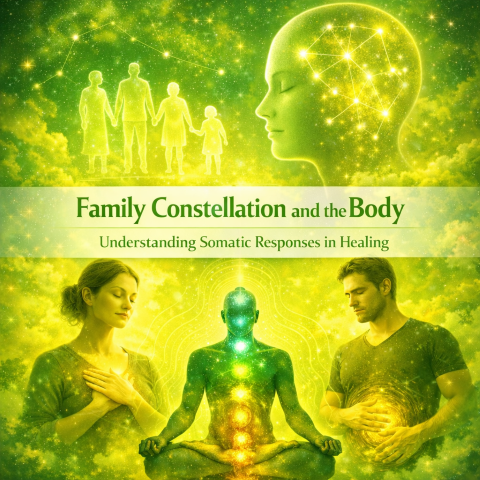Managing Family Stress Together: A Comprehensive Guide
Managing Family Stress is essential in today’s fast-paced world, where work deadlines, financial pressures, and time constraints can easily overwhelm households. When not addressed, stress can escalate into conflicts and strained relationships. However, by uniting as a team and implementing practical strategies, families can transform stressors into opportunities for growth and deeper connections.
Understanding Family Stress
Family counseling offers a supportive setting for loved ones to openly discuss their stressors and recognize how external pressures impact their dynamics. Common stress triggers may include:
- Work Pressures – Long hours and tight deadlines
- Financial Challenges – Budget constraints and unexpected expenses
- Academic Demands – Homework loads and school performance concerns
- Personal Struggles – Mental health issues or self-esteem conflicts
- Time Management – Juggling multiple commitments and activities
- Health Concerns – Chronic illnesses or sudden medical emergencies
“Stress is an ignorant state. It believes that everything is an emergency.” — Natalie Goldberg
This quote underscores how easy it is for anxiety to spiral when we see every challenge as urgent. By reframing our perspective and working together, families can learn to better compartmentalize stress.
The Role of Professional Support
A qualified therapist guides families through:
- Identifying Stress Triggers
Pinpointing the root causes of tension and understanding how each family member is affected. - Developing Coping Mechanisms
Learning techniques like relaxation exercises or journaling for stress relief. - Improving Communication
Discovering how to listen actively, empathize, and solve problems collectively. - Building Resilience
Encouraging mutual support and strategizing for difficult times. - Creating Support Systems
Identifying extended resources, such as local community groups or faith-based organizations.
If you’d like to see how family-focused therapy can address these issues, visit our Services page to explore counseling options tailored to various family needs.
Mindfulness Practices for Families
Therapists frequently recommend mindfulness to foster a peaceful environment at home. Simple but impactful exercises include:
- Deep Breathing
Encouraging everyone to inhale for four counts, hold briefly, then exhale for four counts. - Family Meditation Sessions
Using guided meditation apps or online videos to calm racing thoughts. - Mindful Walking
Paying attention to the sights, sounds, and physical sensations during short walks together. - Guided Relaxation
Setting aside 5-10 minutes for progressive muscle relaxation. - Present-Moment Awareness
Limiting distractions (phones, TV) to fully engage with one another’s company.
Check out our Blog Archives for additional posts covering mindfulness, emotional wellness, and family connection strategies.
Establishing Healthy Boundaries
Creating Structure
Family counseling helps establish boundaries that promote well-being:
- Setting Clear Limits
Defining responsibilities so no one feels overburdened. - Personal Space
Respecting each individual’s need for downtime or privacy. - Managing Time
Aligning schedules, including meal times and shared activities. - Prioritizing Self-Care
Encouraging hobbies, exercise, and social interactions outside family obligations. - Supporting Individual Growth
Allowing each member to pursue personal interests without guilt.
Family Time Management
A well-structured schedule can alleviate stress:
- Planned Family Activities
Scheduling game nights or outings fosters unity and relieves tension. - Regular Check-Ins
Holding weekly “stress level” meetings to address concerns early. - Designated Quiet Times
Letting everyone recharge without interruption. - Shared Meals
Reinforcing connections through conversation and shared dining. - Relaxation Periods
Supporting each person’s need to decompress from daily pressures.
Practical Stress Management Strategies
Daily Practices
Incorporate these into everyday life:
- Morning Check-Ins
A quick discussion of the day’s events to anticipate potential stressors. - After-School/Work Decompression
Spending a few minutes unwinding before engaging in household tasks. - Evening Relaxation Routines
Reading, stretching, or quiet hobbies before bed. - Weekend Family Activities
Outdoor adventures or community service projects that shift focus away from routine stress. - Regular Exercise
Physical movement like walking, biking, or yoga boosts mood and decreases tension.
Communication Tools
- Active Listening
Give each family member the floor to speak, free of interruptions. - Emotion Sharing Circles
Encourage everyone to name their feelings and relate them to specific stressors. - Stress Level Check-Ins
Gauge how each member is coping on a scale of 1 to 10. - Solution-Focused Discussions
Collaborate on potential resolutions rather than dwelling on conflicts. - Appreciation Exchanges
Reinforce positivity by acknowledging what each member has done well.
Celebrating Success
Recognizing even minor achievements reinforces motivation and togetherness:
- Daily Wins
Applaud small victories, like finishing a challenging task or resolving a minor dispute kindly. - Family Milestones
Celebrate birthdays, graduations, or anniversaries to highlight collective growth. - Individual Achievements
Commend personal goals, such as a successful presentation or fitness accomplishment. - Improved Coping Skills
Notice when a family member handles stress better than before. - Stronger Relationships
Savor moments of closeness that emerge from collaborative problem-solving.
Building Resilience Together
Long-Term Strategies
- Problem-Solving Skills
Strengthen teamwork by tackling challenges as a unit. - Emotional Awareness
Practice identifying feelings early to mitigate tension. - Family Bonds
Deepen trust through consistent communication and mutual support. - Support Networks
Encourage extended family, friends, or community groups as allies in stress relief. - Healthy Routines
Maintain balanced nutrition, regular exercise, and sufficient rest.
Moving Forward
Managing Family Stress is a continuous journey that demands patience, commitment, and teamwork. By aligning your daily routines, setting healthy boundaries, practicing mindfulness, and leveraging professional resources, you can transform your home into a sanctuary of mutual support and understanding.
Quick Tips for Immediate Stress Relief
- Deep Breaths Together – Inhale for four counts, exhale for four counts.
- Share a Positive Moment – Boost morale by recalling a simple win from the day.
- Family Huddle – Hugs or group cheer to reset the emotional tone.
- Short Walk – A quick change of scenery can clear everyone’s mind.
- Practice Gratitude – Name one thing you appreciate about each other.
By consistently applying these strategies, families can cultivate resilience and learn to navigate life’s challenges with greater harmony—together.








Add your first comment to this post
You must be logged in to post a comment.